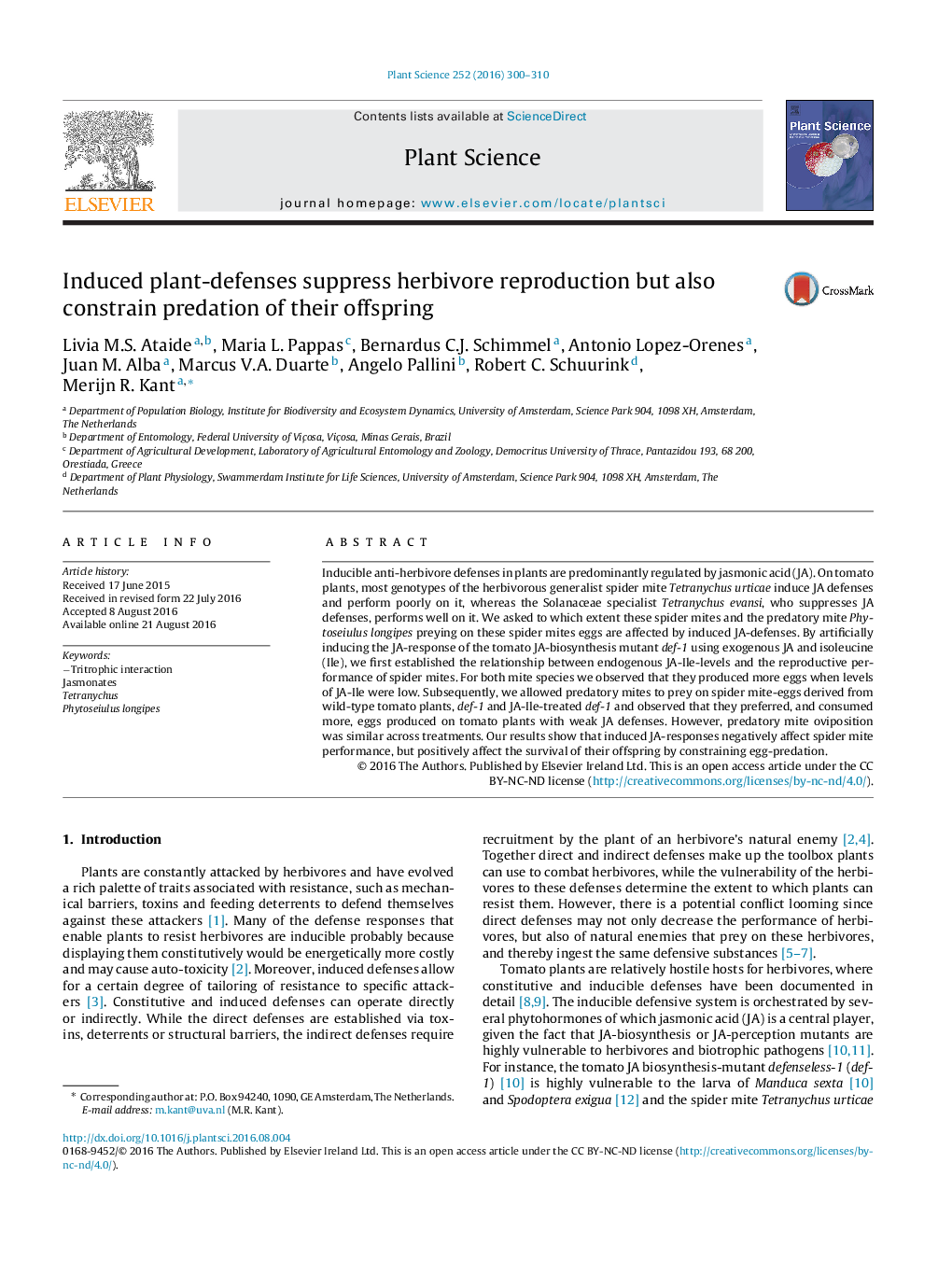| کد مقاله | کد نشریه | سال انتشار | مقاله انگلیسی | نسخه تمام متن |
|---|---|---|---|---|
| 8357064 | 1542037 | 2016 | 11 صفحه PDF | دانلود رایگان |
عنوان انگلیسی مقاله ISI
Induced plant-defenses suppress herbivore reproduction but also constrain predation of their offspring
ترجمه فارسی عنوان
گیاهان متداول دفاع از تولید مثل گیاهان را سرکوب می کنند، بلکه باعث محدود کردن فرزندانشان می شود
دانلود مقاله + سفارش ترجمه
دانلود مقاله ISI انگلیسی
رایگان برای ایرانیان
موضوعات مرتبط
علوم زیستی و بیوفناوری
علوم کشاورزی و بیولوژیک
دانش گیاه شناسی
چکیده انگلیسی
Inducible anti-herbivore defenses in plants are predominantly regulated by jasmonic acid (JA). On tomato plants, most genotypes of the herbivorous generalist spider mite Tetranychus urticae induce JA defenses and perform poorly on it, whereas the Solanaceae specialist Tetranychus evansi, who suppresses JA defenses, performs well on it. We asked to which extent these spider mites and the predatory mite Phytoseiulus longipes preying on these spider mites eggs are affected by induced JA-defenses. By artificially inducing the JA-response of the tomato JA-biosynthesis mutant def-1 using exogenous JA and isoleucine (Ile), we first established the relationship between endogenous JA-Ile-levels and the reproductive performance of spider mites. For both mite species we observed that they produced more eggs when levels of JA-Ile were low. Subsequently, we allowed predatory mites to prey on spider mite-eggs derived from wild-type tomato plants, def-1 and JA-Ile-treated def-1 and observed that they preferred, and consumed more, eggs produced on tomato plants with weak JA defenses. However, predatory mite oviposition was similar across treatments. Our results show that induced JA-responses negatively affect spider mite performance, but positively affect the survival of their offspring by constraining egg-predation.
ناشر
Database: Elsevier - ScienceDirect (ساینس دایرکت)
Journal: Plant Science - Volume 252, November 2016, Pages 300-310
Journal: Plant Science - Volume 252, November 2016, Pages 300-310
نویسندگان
Livia M.S. Ataide, Maria L. Pappas, Bernardus C.J. Schimmel, Antonio Lopez-Orenes, Juan M. Alba, Marcus V.A. Duarte, Angelo Pallini, Robert C. Schuurink, Merijn R. Kant,
